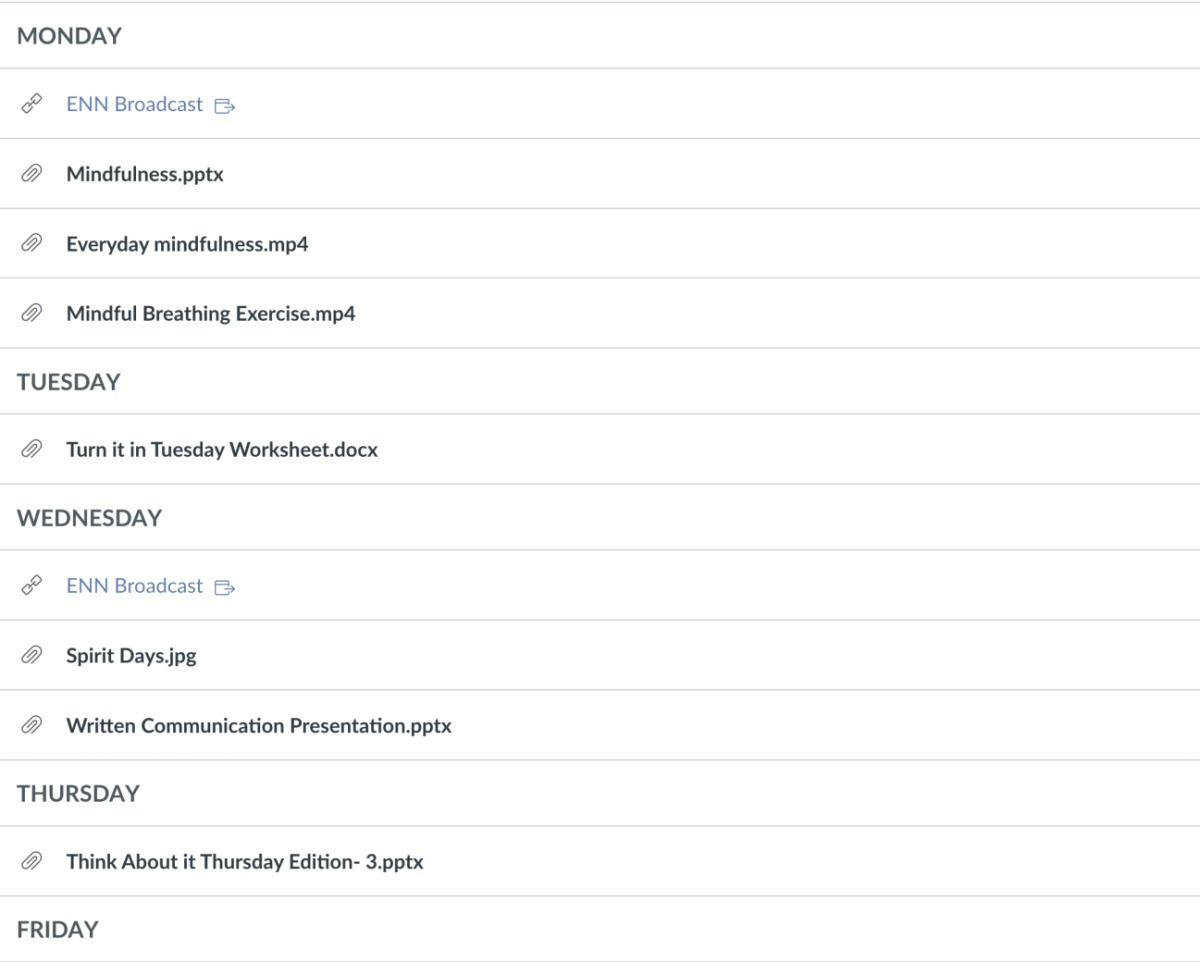This school year, advisory has changed from occurring during a student’s third and seventh period to being its own independent ‘class.’ Teachers and students are expected to use this time to partake in the SEL, or Social Emotional Learning lessons, and better get to know their peers and school.
The decision to change up the advisory period meant a lot of planning for administrators. Multiple different conversations had to occur so they could know exactly what the class would look like. Academic Associates Principal Shira Fuller played a role in the development of the period.
“We’ve created a lot more structure. We reflected on how it [advisory] went last year, and even though we set up some systems we hadn’t set up enough structure. Mrs. Alloway provides those resources every week in Canvas, so setting up that system entailed us talking with some of the other high schools to see what worked and what didn’t with them,” Fuller said. “On the technical side, I had to work with my skyward coordinator at the central office, she had to set up the account and we had to think about the course code. I really had to think about ‘well we are taking attendance, but we’re not taking a grade’ so as I set up that course I had to think through what it’s really gonna look like.”
The opinions of this new period have varied throughout the school. Some people have really enjoyed advisory, while others have a more negative opinion of how their time is being used. Advanced English teacher Amy Markan can see both the positives and negatives of this new advisory.
“I see the value in the SEL lessons and the idea is all Mansfield schools are supposed to be doing it because it’s things to think about, like having empathy for someone. They’re totally necessary because it’s helping to improve our school and our dynamic,” Markan said. “It’s a little bit of a challenge for me personally, now with having this advisory lesson every single day, on A days I don’t eat lunch and I don’t get time to plan. From that standpoint, it’s a little bit hard for me. It feels like another class.”
According to Fuller, the activities done during advisory are meant to further the students’ emotional understanding and get them closer to graduation. While this is a good idea, some students have struggled to stay engaged. Madison Melo, a sophomore, finds the activities can feel boring.
“Some kids don’t do the assignments, but most kids do. I feel some of the activities are engaging but the more repetitive ones don’t get many people paying attention. Personally I don’t find them helpful but others do. I would recommend more interactive activities like games, or something hands on,” Melo said.
Students especially have struggled to see the positive side of advisory. Some view it as a waste of time and don’t understand why it’s necessary. Sophomore Chance McDermott finds most of the activities and lessons unhelpful to him.
“I like Turn-It-In Tuesdays because it gives me time to work on my work, but other than that I think it’s pointless. They’re just telling me stuff that I already know. I feel like I need more time to study, and it’s added to my workload because we have to write papers and do the activities,” McDermott said.
Each day of the week focuses on a different aspect of what the students need to learn or do to reach their full potential. These activities are often videos with a reflection part after. Fuller hopes these assignments will benefit struggling students.
“Because they [students] have someone every single day that they see, that’s going to help. We know that there will be information we need to get to kids, and we’ll get to a lot more kids. There’s important information about colleges, go centers, graduation requirements, and upcoming events that not all the kids were getting,” said Fuller. “It’s definitely an adjustment, but we know that we will have reached more kids with the things we need to reach them with. Our goal is to hit every kid with all the things they need and a homeroom helps us do that.”
Overall the advisory period has had both positives and negatives for the school. As students and teachers adjust to this new system, they will have to learn what works best for them. Administrators are hopeful for what this class will provide to the atmosphere of the school.


